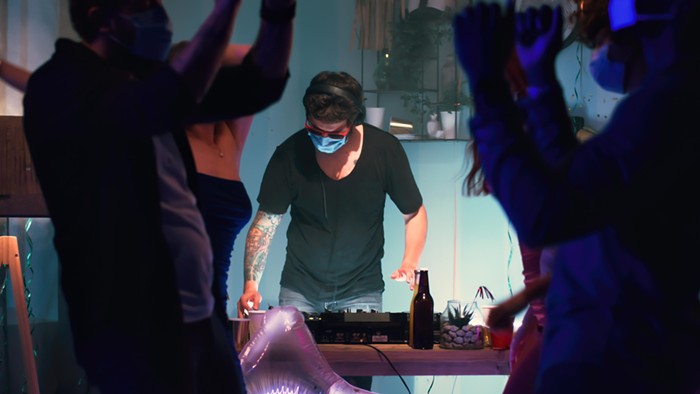
We’re all looking forward to bars, clubs, and concerts coming back to life like a bunch of rowdy bears waking up from a year-long hibernation, but the resumption of nightlife is particularly urgent for Scott Plusquellec, Seattle’s night mayor.
Technically, his job title is “nightlife business services advocate” in the Office of Economic Development, but you can think of Scott as the go-between for Seattle’s after-hours businesses and city government, an advocate for policy and financial programs that keep the lights on when the sun goes down. (Scott’s position was initially eliminated by Mayor Durkan’s 2021 budget, but "because our financial forecasts changed," according to EOD spokesperson Karissa Braxton, he'll remain with the team.)
So, with everyone itching to go out and party like it’s 2019 ... what can we expect?
First, the bad news: The scene’s not going to be like it was, at least not at first.
“It’s been devastating,” Plusquellec says, noting that venues around the city have shuttered, and that he wouldn’t be surprised to see a few more go before doors can re-open.
“Re-bar is near and dear to my heart. I directed shows there. I came of age there in many ways,” he says.
The shutdown has taken a toll on all of the people who worked in nightlife, too.
“Lifelong industry workers who have been out of jobs for a year,” Plusquellec says. “They’ve had to find other places to work, and we don’t know if they’ll come back.”
But if there’s any silver lining, he says, it’s that “tragedy brings people together.” He’d been trying for years to get venue owners to work together more closely, and it took a pandemic to finally make it happen. The Washington Nightlife Music Association (WANMA) is a new group of around sixty Washington nightlife businesses, about half of which are in Seattle, that finally came together last year.
Plusquellec credits the organization with advocating for a $2 billion federal loan program for shuttered venues, and for helping to create reopening guidelines that were presented to state leaders. Currently, the group is working on a set of uniform messages that venues can use to let patrons know what safety measures are in place when people can return.
“They were in competition with each other,” Plusquellec says. “They didn’t want to be in a meeting together. … Now friendships are formed. WANMA isn’t going away.”
“Having venue owners getting to know each other in a cooperative manner will strengthen the industry,” says Pamela Banks, Interim Director of the Office of Economic Development. “Government can’t do it by ourselves.”
It’s still a little too early to say exactly what it will look like when music venues start welcoming people back, but Plusquellec and Banks say there will likely be a standardized set of instructions worked out for participating venues. That might take the form of signs with instructions for masking, icons indicating safe distances, or even videos that ticket-buyers will be sent ahead of time so they know what to expect at the venue.
After a grueling year, both Plusquellec and Banks are looking forward to some new starts in the months ahead — particularly Climate Change Arena, which will host large concerts. Plusquellec is also excited for Supernova, a new warehouse space in SODO that was about to open last year when quarantine hit, and is ready to open its doors this year.
The Office of Economic Development is also interested in finding some creative entertainment options this summer — converting streets into venues for music festivals, for example.
“We could pick a night and shut the streets and do something in Belltown for club owners,” Banks says. “The city is looking to business owners to come to us with creative ideas. and we’ll try to accommodate as much as possible.”
And although it’s his job to look after business interests, Plusquellec says, he’s also mindful of the emotional toll this year has taken.
“I just want to hug everybody,” he says.















